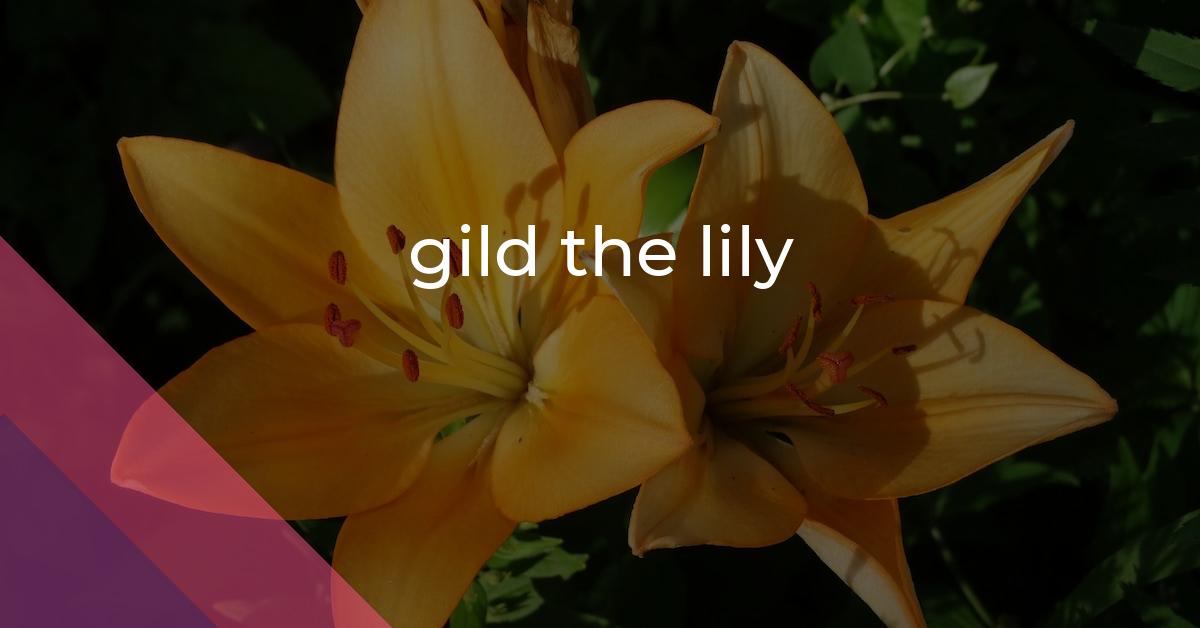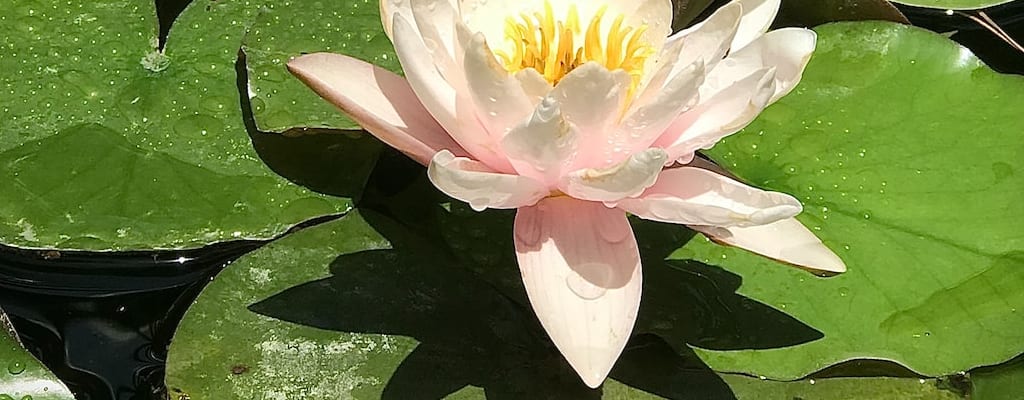gild the lily: Idiom Meaning and Origin
What does ‘gild the lily’ mean?
The idiom *gild the lily* means to unnecessarily decorate or embellish something that is already beautiful or perfect.

Idiom Explorer
This idiom means to exaggerate or make something seem more serious or important than it really is.
The idiom "hide one's light under a bushel" means to conceal or downplay one's talents, abilities, or achievements.
The idiom "good job" is used to express approval or praise for someone's work or accomplishment.
The idiom "for the birds" means something is worthless, unimportant, or not serious.
The idiom "for show" means doing something only to give the appearance of it, without any real substance or intention behind it.
The idiom "for good measure" means to do something in addition to what is necessary or expected, often for extra effect or completeness.
The idiom "fly in the ointment" refers to a small but significant flaw or issue that spoils something positive or favorable. It symbolizes how even a small problem can greatly detract from the overall enjoyment or success of a situation.
The idiom "fish in troubled waters" means to take advantage of a difficult or chaotic situation for personal gain or advantage.
The idiom "fine feathers make fine birds" means that a person's appearance or external qualities can deceive others into thinking they possess admirable qualities or skills. However, this may not always be the case, as true value lies within a person rather than their outward appearance.
Regal Transformation
The idiom "gild the lily" is often used to convey the idea of unnecessary embellishment or enhancement. It suggests that attempting to improve upon something that is already excellent or beautiful is pointless and may even diminish its original charm. This metaphorical phrase originated from a line in Shakespeare's play "King John" and has since become a widely used expression in American English.
When we talk about "gilding the lily," we are referring to the act of adorning or embellishing something that is already perfect or beautiful. It implies that adding more to a thing that is already complete is excessive and unnecessary. This idiom has become a regular part of our vocabulary, used in various contexts to remind us to appreciate the natural state of things without feeling the need to overdo it.
The phrase "make a mountain out of a molehill" is another idiom that relates to the concept of unnecessary embellishment. It means to exaggerate or overemphasize something that is trivial or unimportant. Just as "gilding the lily" warns against adding unnecessary adornment, "making a mountain out of a molehill" cautions against blowing things out of proportion.
Using this related idiom, we can see that while "gilding the lily" focuses more on physical enhancement, "making a mountain out of a molehill" is concerned with the exaggeration of importance. Both idioms encourage us to appreciate the simplicity and true value of things, without adding unnecessary complexities or making something trivial seem significant.
In a similar vein, the idiom "adorn oneself with borrowed plumes" also aligns with the concept of unnecessary embellishment. It means to take credit or praise for someone else's achievements or attributes. Just as "gilding the lily" warns against adding unnecessary decoration, "adorning oneself with borrowed plumes" cautions against taking credit for someone else's accomplishments.
With this related idiom, we can see that "gilding the lily" extends beyond physical enhancement to encompass the idea of claiming credit or praise that is not rightfully earned. Both idioms caution against overstepping boundaries or trying to enhance oneself through means that are not genuine or authentic.
Overall, the idiom "gild the lily" serves as a reminder to appreciate and value things in their natural state, without unnecessary embellishments. It signifies the act of adorning or embellishing something that is already perfect or beautiful, and it emphasizes the idea that additional enhancement is redundant and may even diminish the original charm.
"gild the lily" has become a commonly used phrase in English, particularly in American English. It originated from Shakespeare's play "King John" and has come to symbolize the act of unnecessary embellishment. Alongside related idioms like "make a mountain out of a molehill" and "adorn oneself with borrowed plumes," it encourages us to appreciate the simplicity and true value of things, without adding unnecessary complexities or taking credit for someone else's accomplishments. So let us remember to embrace the natural beauty and excellence around us without feeling the need to overdo it.
Example usage
Examples of how the idiom "gild the lily" can be used in a sentence:
- She wore excessive makeup, which was essentially gilding the lily.
- Adding more decorations to the already beautifully decorated cake would just be gilding the lily.
- The company's advertisements exaggerate the product's features, but it feels like trying to gild the lily.
More "Overused" idioms
We missed the mark - nothing found.



